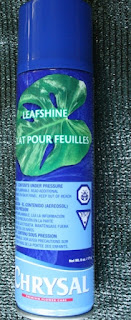Sunday
January 10 was houseplant appreciation day, an appropriate observation since
houseplants help beautify our homes, elevate our moods and clean the air we
breathe. Taking care of houseplants in the winter is a little different because
the days are shorter, there is less light and the air is drier. For these
reasons, your houseplants won't grow as vigorously as they do in spring and
summer. They still need your attention, but they don't need as much water and
fertilizer. They do need as much light as you can provide and they greatly
benefit from increased humidity levels. A simple way to increase the humidity
is to group your plants closer together. Plants release water through their
leaves and grouping plants closer together increase the humidity.
Set up a pebble tray to increase humidity. Fill a saucer with small rocks and add water. Just make sure the bottom of the pot doesn't touch the water. Placing a room humidifier closer to your plants will greatly increase the humidity around your plants. Lower light levels also affect your plants. Not only are the days shorter, the sun is very low on the horizon so the angle is different. A location that works great for your plants during the summer may not be enough light for them in the winter. If possible, move your plants to a south or west facing window. Another option is to add supplemental lighting. Grow lights are available that will fit a standard light socket. You'll need to adjust your watering routine to match what your plants need this time of year. Slower growth means your plant won't need as much water to keep it hydrated. One way to tell if your plant needs water is to poke your finger into the soil and see how dry it is an inch or two below the surface. When the soil feels dry below the surface, that's when it's time to water. If you're still not sure, consider buying a simple moisture meter. You stick the meter in the soil and it will tell you or dry or wet the soil is. When you do water, try to use water that's room temperature. An easy way to do this is to fill your watering can the day before you plan to water. It's also important to cut back on the fertilizing. Your plants don't need to be fed when they’re not growing as vigorously. Cut the recommended amount in half. You can feed your plants more as spring approaches and days get longer. Finally, keep your houseplants clean. Wipe the leaves with a soft, damp rag. Small plants can be put in the sink and rinsed off. Use a product designed to help keep the leaves clean. This can help repel bugs, also. With a little help, your houseplants can do well in the winter season.
Set up a pebble tray to increase humidity. Fill a saucer with small rocks and add water. Just make sure the bottom of the pot doesn't touch the water. Placing a room humidifier closer to your plants will greatly increase the humidity around your plants. Lower light levels also affect your plants. Not only are the days shorter, the sun is very low on the horizon so the angle is different. A location that works great for your plants during the summer may not be enough light for them in the winter. If possible, move your plants to a south or west facing window. Another option is to add supplemental lighting. Grow lights are available that will fit a standard light socket. You'll need to adjust your watering routine to match what your plants need this time of year. Slower growth means your plant won't need as much water to keep it hydrated. One way to tell if your plant needs water is to poke your finger into the soil and see how dry it is an inch or two below the surface. When the soil feels dry below the surface, that's when it's time to water. If you're still not sure, consider buying a simple moisture meter. You stick the meter in the soil and it will tell you or dry or wet the soil is. When you do water, try to use water that's room temperature. An easy way to do this is to fill your watering can the day before you plan to water. It's also important to cut back on the fertilizing. Your plants don't need to be fed when they’re not growing as vigorously. Cut the recommended amount in half. You can feed your plants more as spring approaches and days get longer. Finally, keep your houseplants clean. Wipe the leaves with a soft, damp rag. Small plants can be put in the sink and rinsed off. Use a product designed to help keep the leaves clean. This can help repel bugs, also. With a little help, your houseplants can do well in the winter season.







No comments:
Post a Comment